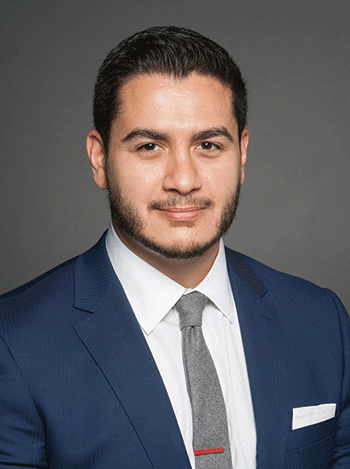
|
| Abdul El-Sayed. |
DETROIT — As a child whose family emigrated from the Middle East in the 1970s, Abdul El-Sayed said defining his identity was complicated.
“There’s always a question about where you’re actually from,” El-Sayed said. “Are you from America? Are you from Egypt? For me, I could always answer that question by saying ‘I’m from Detroit.’”
El-Sayed, who grew up in the city and its northern suburbs, recently returned to serve as executive director of the Detroit Department of Health & Wellness Promotion.
“This is a new experience for me as a public servant and it’s one I take very seriously,” said the 30-year-old El-Sayed. “The Detroit area is home, but I really changed a lot since I’ve been away.”
After earning bachelor’s degrees with the highest distinction in biology and political science from the University of Michigan, El-Sayed traversed the world for his studies and research.
He earned a medical degree and a doctorate in public health from Columbia University, where he was a Soros Fellow. He holds a DPhil in Population Health from Oxford University as a Rhodes Scholar.
In addition to working as a professor in the Department of Epidemiology and Mailman School of Public Health at Columbia University, El-Sayed directed the Columbia University Systems Science Program and Global Research Analytics for Population Health.
“Dr. El-Sayed is a remarkably accomplished and talented public health administrator,” Mayor Duggan said in a statement about El-Sayed’s appointment to the health department. “He will lead the restructuring of our health department to start addressing overall community health in a holistic way that hasn’t been done in the past.”
After the Detroit Health Department was dissolved two years ago because of complaints of inefficiency, city health services moved back under the jurisdiction of the health department last fall. The department is now in a state of transition to become strong and future-oriented, El-Sayed said.
Part of that process involves bringing public health into the city’s neighborhoods rather than focusing only on delivering services in the department’s facilities, he said.
In addition to food access and walkability, the issues of infant mortality, obesity and community violence will top El-Sayed’s priority list in the early stages of his tenure as executive director.
El-Sayed said he will draw on his research experience as a graduate student and a professor, which focused on understanding why marginalized populations suffer worse health than their counterparts, especially in relation to preterm birth, infant mortality and obesity.
“This is an opportunity for me to move beyond the abstract thinking of a problem to hopefully doing something about it,” El-Sayed said.
He also said it’s a tall order to do a job like his well and that success will come only after a lot of learning. He hopes to glean knowledge from any mistakes he makes and learn how to use his role to affect positive change.
El-Sayed plans to work closely with community organizations, such as Detroit PAL and Slow Roll Detroit. He said he is enthusiastic about the opportunity to use his skills in service to a city he cares deeply about.
“Growing up, I always knew that I loved two things,” he said. “I loved science and I really loved people. And I loved the intersection between science and people. Nowhere is that more clear than in medicine and public health.”
Since his time as an undergraduate with majors in two starkly different disciplines, El-Sayed has found a way to connect his interests. He said he draws on his understanding of government, as well as the fundamental biological and social processes that influence people’s health in his everyday work.
“It’s an opportunity to really leverage the democratic process to try and make people healthier in fundamental ways,” El-Sayed said of his job. “It’s among the greatest things one could dedicate a life to, so I’m really thankful to be given an opportunity to work on these issues.”






Leave a Reply